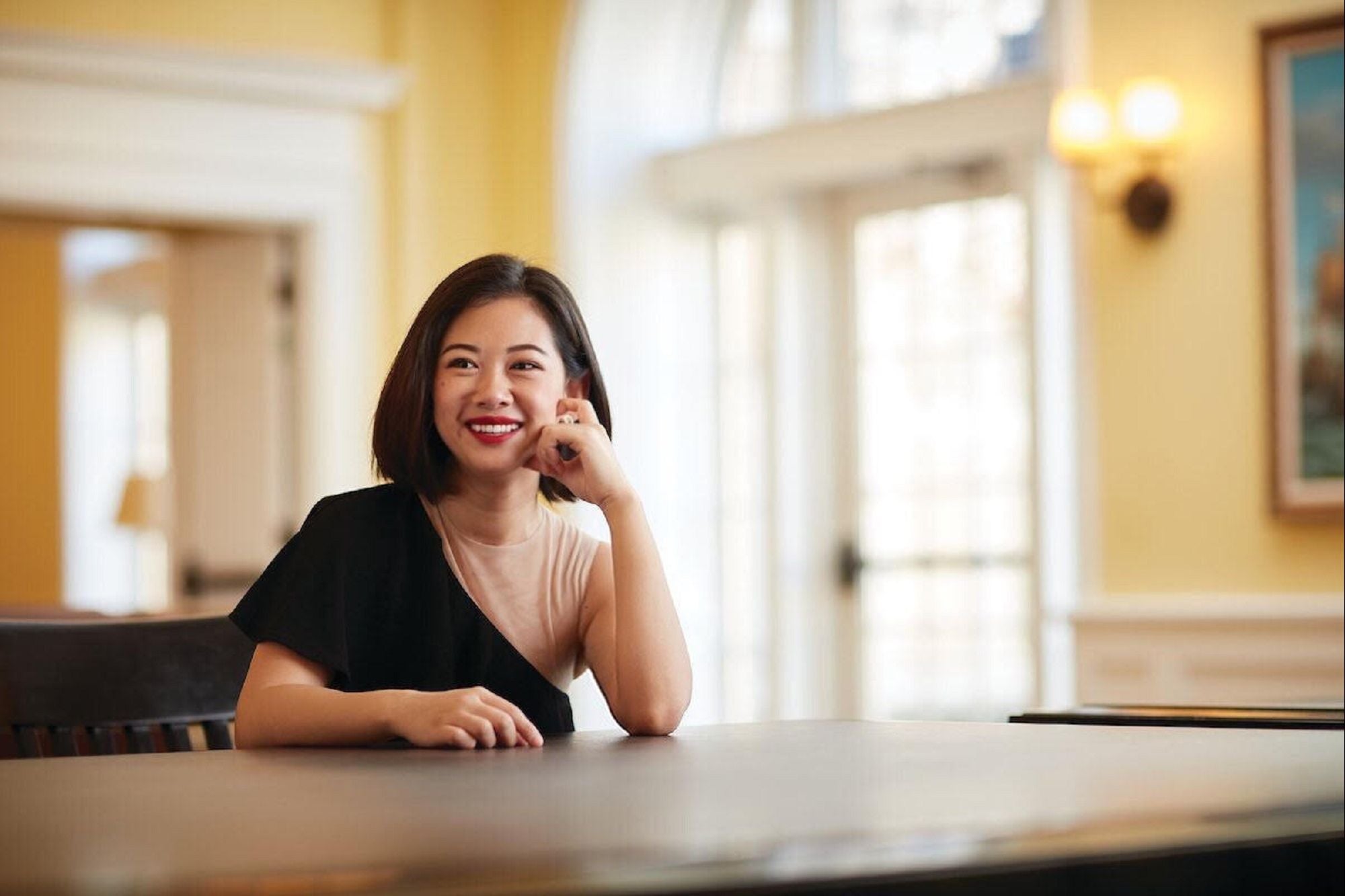How this Asian Woman Entrepreneur is Redefining the World of Venture Capital Pocket Sun, the 27-year-old co-founder of multi-million dollar VC firm SoGal, wants to better gender dynamics
By Pooja Singh •
Opinions expressed by Entrepreneur contributors are their own.
You're reading Entrepreneur Asia Pacific, an international franchise of Entrepreneur Media.

Yiqing "Pocket" Sun became a venture capitalist by accident. A Chinese national who arrived in the US in 2009 to study at Virginia's William & Mary College, Sun was enjoying her job at an American corporate marketing firm when suddenly she had to quit because of work visa issues.
Determined to stay in the country, she signed up for a master's degree in entrepreneurship and innovation at the University of Southern California (USC). While there she realized "entrepreneurship is the only way to make a real impact on the world." But there was a problem.
She felt lonely as an aspirational entrepreneur. The venture capital industry is male-dominated and Sun felt many female entrepreneurs were undervalued and undercapitalized. The biggest problem she found was lack of access to capital, which was hurting the chances of women entrepreneurs.
So Sun decided to start SoGal (inspired from Southern California's university SoCal acronym + Gal) as a student organization at USC in 2014, which quickly grew into a global community of entrepreneurs and investors.
Today, SoGal Ventures is a multimillion-dollar, female-led, millennial venture capital firm. Sun and co-founder Elizabeth Galbut (whom she met in a venture capital course at Stanford University) take care of over 50 companies. The SoGal community is now called SoGal Foundation (a US nonprofit organization), reaching over 100,000 entrepreneurs in more than 30 countries.
Besides this, 27-year-old Sun has given TEDx talks, is a regular speaker at conferences and summits across the world, and has been on the cover of Forbes Asia as one of their 30 Under 30.
We spoke with Sun to learn more about SoGal's journey and how it is trying to empower women entrepreneurs. Edited excerpts:
What was the first investment SoGal made?
It was in January 2017 to Function of Beauty, a New York-based startup that creates 100 percent customized hair care products. We thought it represented the new way of buying personal care and the power of advanced manufacturing.
How much money have you invested so far?
Over three million has been invested in 19 companies since January 2017.
Was it difficult to get companies in the initial phase?
It was more difficult to get investors for our fund than companies. Companies love what we know, how we add value, and what we stand for. We are the only VC (venture capital) firm that really has empathy for the future generation from a global perspective.
Why are there are so few female venture capitalists?
Historical reasons mostly. Women's opinions weren't previously valued as they should have been; and the industry has been quite exclusive with a phantom high barrier to entry.
Is it worse in Asia?
Yes and no. Yes, because in Asia there are so few women partners at VC firms or women starting their own firms. No, because I see way more women VCs — especially young women — in China than in the US. For these reasons, I started SheVC last year (in 2017) to help women VCs get together for collaborative growth and better gender dynamics. So far we've hosted almost 200 women investors across key cities in Asia.
Are VC firms still apprehensive about investing in women-led businesses?
Yes. Many women VCs don't have much decision-making power at their firms; the few women who started their own VC firms don't have much asset under management. That's why it's so important to involve women in investment decisionmaking early on. We have 70 percent female LPs and quite a few of them are under the age of 30. We also encourage and enable women who have disposable capital to start investing in venture.
What was your father's reaction to SoGal?
He's still not totally sure what venture capital is about but has been supportive in spirit. I've shown him our achievements and awesome portfolio, and he thinks our fund could grow much bigger.
What has made it so successful?
We challenge the status quo and do things differently. We amplify our difference, advocate for change, and own the space of investing in the next generation, diverse entrepreneurs globally. We're also collaborative with our peers, Fortune 500 companies, educational institutions, and international ecosystems, so we always have great leverage in what we do.
SoGal has chapters across the world. How do you guys manage?
Managing and growing our global SoGal community was a great passion of mine, and the community is a powerful differentiator for our business. Now we've established a nonprofit called SoGal Foundation to formally scale the community and education part. With our portfolio founders we mainly use iMessage and Instagram, and with our active community members we mainly use WeChat, WhatsApp and Facebook.
Is it always business talk with the founders?
Business talk is certainly exhilarating when you love what you do. But, of course, we talk about everything around being a woman, wellness, mentality, relationships, self-growth, gender, sexuality, politics, feminism.
Any horror founder stories?
I recently flew to a new city to meet a startup team (one female plus three male cofounders). The male CEO kept saying that he doesn't negotiate valuations or board seats, controls all voting rights, can turn profitable whenever he wants, etc. The way he spoke was so macho and intimidating that I physically felt pains after the meeting. And interestingly, this company mainly targets young female customers and the CEO kept stressing that he respects women, yet he made me, the only VC who's in his target customer demographic, feel horrible and disrespected.
Later, he asked the female co-founder to apologize on his behalf even though he had my contact info. But apparently, his demeanor worked well with top VC firms — he told me he got six-term sheets in 20 days. It made me question how mainstream VCs make decisions — they must have been attracted to a "tough" male CEO who's overly confident with a unicorn promise and no real metrics.
She Rules is a series that documents the journey of a woman entrepreneur. It tries to capture the story of the person behind the brand, to tell her struggles, her challenges, her strengths, her dreams, and what makes her, her.













